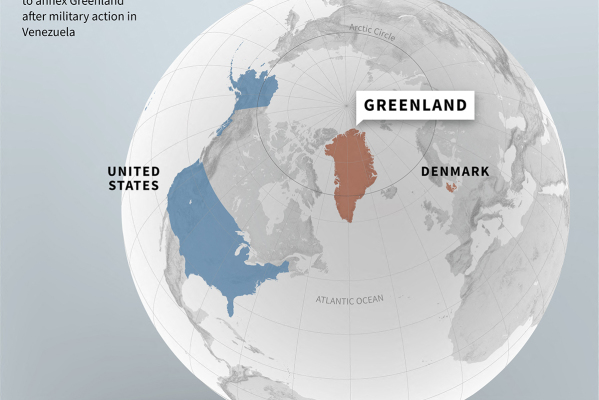Georgia can't ban supporters of Israel boycott from doing business with the state, judge rules

A federal judge has ruled against a Georgia law requiring organizations and individuals who contract with public entities to declare that they will not support the Boycott, Divestment and Sanctions movement against Israel.
Last Friday, U.S. District Court Judge Mark Cohen for the Northern District of Georgia issued a ruling in Abby Martin v. Steve Wrigley, et. al.
At issue is Georgia Southern University inviting pro-Palestinian journalist Abby Martin to speak at an event and requiring her, by law, agree to not voicing support of a boycott of Israel.
The law amended the Georgia Code to read that the “state shall not enter into a contract with an individual or company if the contract is related to construction or the provision of services, supplies, or information technology unless the contract includes a written certification that such individual or company is not currently engaged in, and agrees for the duration of the contract not to engage in, a boycott of Israel.”
Cohen, an Obama appointee, ruled that the state law “imposes a condition on those who contract with the state of Georgia that implicates the contractors' First Amendment rights.”
“Defendants fail to explain how Martin's advocacy of a boycott of Israel has any bearing on Georgia's ability to advance foreign policy goals with Israel,” wrote Cohen.
Cohen added that the law has “a similar chilling effect because, as alleged in the First Amended Complaint, the statute effectively bans Martin from speaking at GSU and presumably other state university campuses.”
Cohen did not fully side with Martin. The judge also concluded that certain individual defendants named in the lawsuit were not liable for their enforcement of the law.
Groups including the Partnership for Civil Justice Fund and the Georgia chapter of the Council on American-Islamic Relations celebrated the ruling.
Partnership for Civil Justice Fund counsel Mara Verheyden-Hilliard said in a statement Monday that the law was an “outrageous effort by Georgia politicians to censor free speech rights.”
“This ruling comes at a crucial moment, when millions of Americans are questioning the use of U.S.-provided weapons in the onslaught against the Palestinian people and makes clear that the Constitution protects participation in the BDS movement, just as it protected the seminal civil rights and labor organizing boycotts that moved our society forward,” stated Verheyden-Hilliard.
In 2016, Georgia became the sixth state in the U.S. to put restrictions on the extent to which organizations or individuals doing business with public entities could endorse a boycott of Israel.
State Sen. Judson Hill, who sponsored the legislation, said in a statement at the time that the measure showed that Georgia was “proud to stand shoulder to shoulder with our friend and key trading partner Israel.”
“We are also pleased to join our neighboring states of South Carolina and Florida, along with other states all around America, in taking a stand against the anti-Semitism and discrimination of the BDS movement,” continued Hill, as reported by The Tower.
In February, a three-judge panel of the U.S. Court of Appeals for the Eighth Circuit ruled 2-1 that an Arkansas law prohibiting the state from contracting with or investing in businesses that support boycotting Israel was unconstitutional.
“Supporting or promoting boycotts of Israel is constitutionally protected,” reads the majority opinion. “The Act prohibits the contractor from engaging in boycott activity outside the scope of the contractual relationship ‘on its own time and dime’ … Such a restriction violates the First Amendment.”
Eighth Circuit Judge Jonathan Kobes, a Trump appointee, authored a dissent. He argued that the "states have a broad mandate to enact legislation evincing the policy choices of their citizens."
"We may only hold states back in achieving those goals when they do so by unconstitutional means,” dissented Kobes.
“Nothing in the text of the operative provision itself suggests overreach (regulation of protected speech) by the Arkansas Legislature, and we should not impute an unconstitutional meaning to a statute that is benign on its face.”





















